Description
ABSTRACT
Strengthening the Legal Regime for the Recognition and Enforcement of Arbitral Awards in Nigeria
Enuma U. Moneke*
In Nigeria, provisions for the recognition and enforcement of arbitral awards are made under local and international instruments. While these instruments facilitate the smooth enforcement of awards in certain respects, the enforcement process is hampered in other respects by defects in these laws. For example, the absence of statutory time limits for the enforcement of awards under the Arbitration and Conciliation Act (ACA) 1988, and the resulting reliance on Federal and State Limitation Laws, may sometimes mean that an award creditor is denied justice through no fault of theirs. Also, the enforcement process is impeded by the slowness in the disposal of cases by the Nigerian courts. In fact, proceedings for the enforcement of awards have been known to last for twelve years. These problems and several others to be discussed in this paper could affect investor-confidence and consequently, the current foreign investment drive by the Federal Government. The paper looks at the various instruments for the recognition and enforcement of domestic and foreign awards in Nigeria against the backdrop of their peculiarities, strengths and weaknesses. It also takes a brief look at the issue of slowness in the disposal of cases by the courts using IPCO (Nigeria) Limited v Nigerian National Petroleum Corporation as a point of reference. Having considered these issues, the paper posits that the current regime for the recognition and enforcement of arbitral awards could be more effective. As Nigeria has continued to rank poorly on the World Bank Ease of Doing Business annual surveys, the paper stresses that one way of improving this rating is by entrenching a more effective framework for the enforcement of awards, particularly as arbitration has become the preferred dispute resolution mechanism in international commercial transactions. The effect of this is that investors will be more willing to invest in Nigeria knowing that in the event of a dispute or a claim they will be able to fall back on our laws and justice system.
Keywords: Recognition of Arbitral award, Enforcement of Arbitral Award, Limitation Law, Arbitration and Conciliation Act, IPCO v NNPC
INTRODUCTION
The 21st Century has witnessed a considerable expansion in global trade and investments. Concomitant with this development is the increasing inclusion of arbitration agreements in commercial contracts, particularly international contracts. This is not unconnected with the fact that arbitration provides a viable alternative to litigation in the resolution of domestic and crossborder commercial disputes. Arbitration agreements, by their very nature, imply that parties to arbitration will comply with the decision of the arbitral tribunal by performing the award without delay, no matter how unpalatable it may be.1
** LL.M (Maritime) (University of London), BL, Solicitor of England and Wales, MCIArb (UK). Research Fellow, Nigerian Institute of Advanced Legal Studies (NIALS) Abuja, Nigeria
- The various international and institutional rules of arbitration enjoin parties to carry out an award without delay; See the United Nations Commission on International Trade Law (UNCITRAL) Arbitration Rules 1976, art 32(2); United Nations Commission on International Trade Law (UNCITRAL) Arbitration Rules 2010, art 34 (2);United Nations Commission on International Trade Law (UNCITRAL) Arbitration Rules 2013, art 34(2); See also the London Court of International Arbitration (LCIA) Rules 2014, art 26(8).

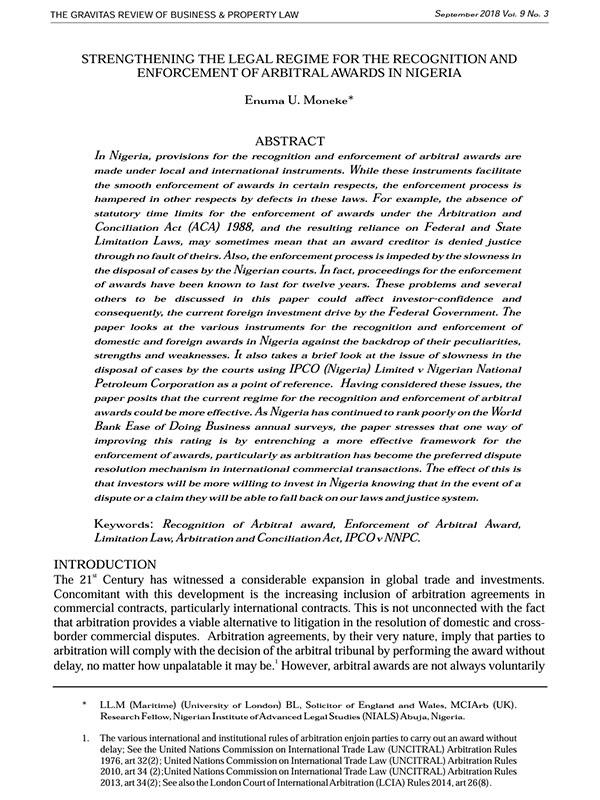
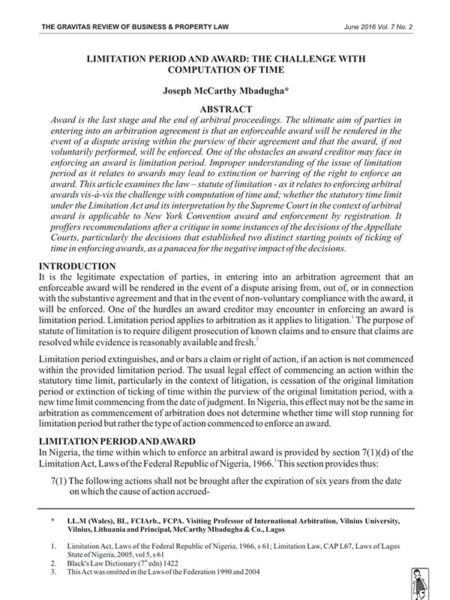
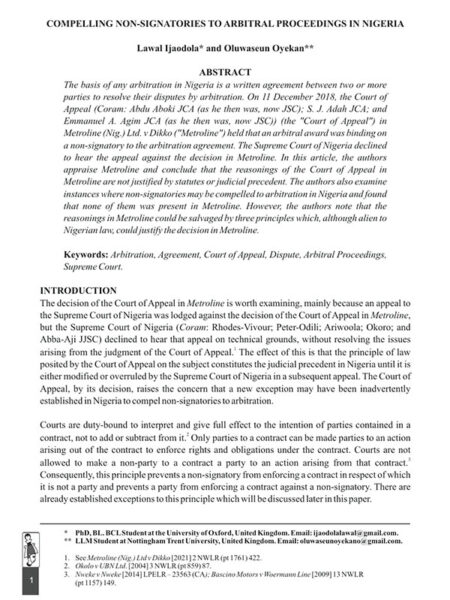
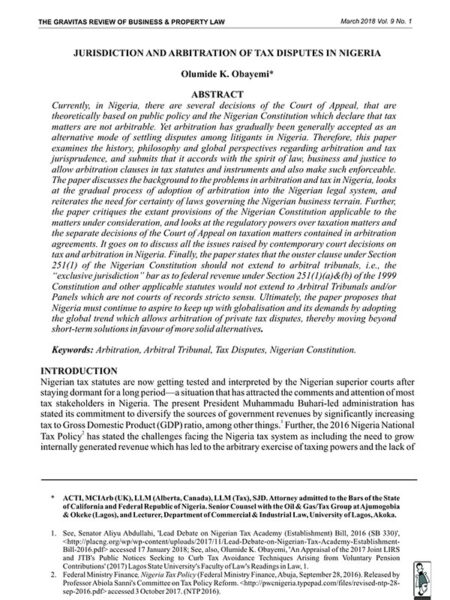
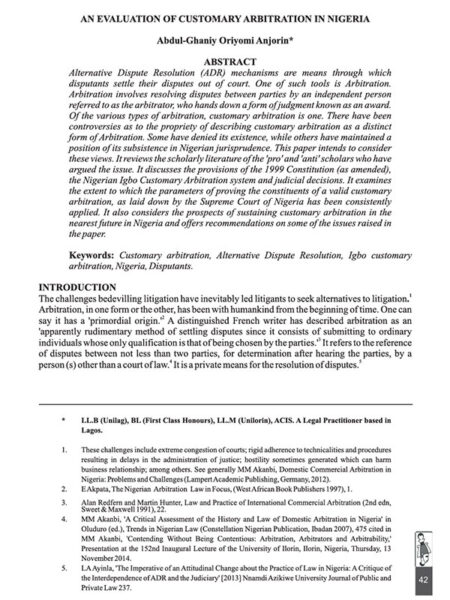


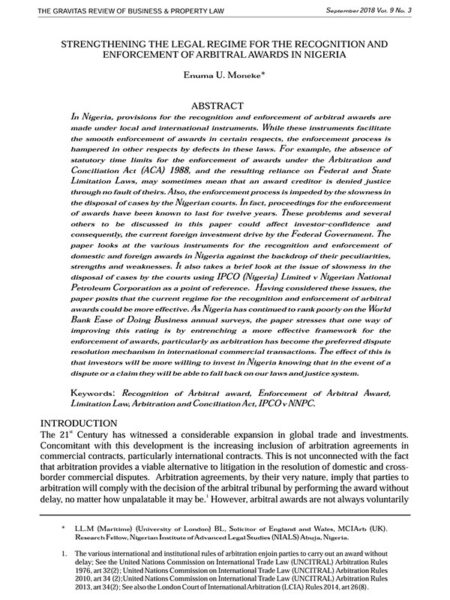
Reviews
There are no reviews yet.